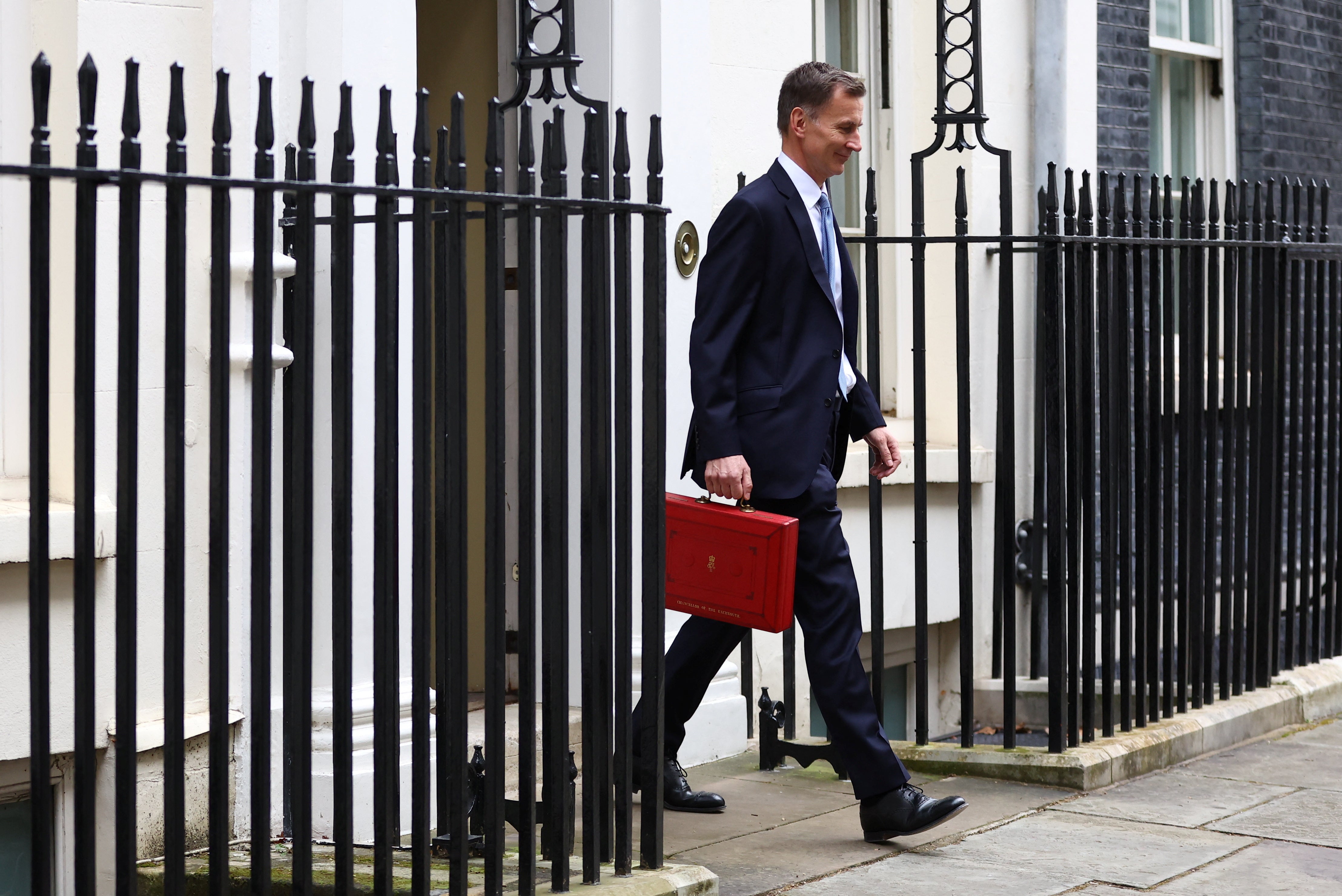Is breaking the triple lock on pensions the key to balancing Britain’s books?
Rumour has it that the chancellor, Jeremy Hunt, might be about to use his boltcutters on the established policy, which guarantees pensions will rise by the highest of three different parameters. Sean O’Grady asks what it would mean for the economy – and for the Tories


The chancellor, Jeremy Hunt, is due to deliver his autumn statement, a sort of interim Budget, on 22 November, and already the media are carrying leaks about what’s in store – no substantial tax cuts, higher borrowing costs – and now, another heavy hint that the “triple lock” that boosts the state pension every year is to be “tweaked” or come “under attack”, depending on the various accounts. As with Hunt himself, any changes are probably going to be a fairly mild affair – but that creates problems of its own.
What is the ‘triple lock’?
It’s a Liberal Democrat-inspired policy and found its way into the coalition government’s programme in 2010. The idea is to protect the purchasing power of the old age pension, which had been policy for a long time, but by going further it can ensure that the income of pensioners keeps up with that of the rest of the population, because normally the trend is for wages to rise faster than prices.
Thus, a guarantee of an annual rise of 2.5 per cent, or the rate of inflation, or the increase in earnings – whichever of the three was higher – did improve the living standards of older citizens, and reduced the levels of pensioner poverty, which had become a serious social problem by the late 1990s. (The link with earnings was broken by the Thatcher government in 1980.)
An exacerbating factor in the increase in old age poverty was that “proud” or frail pensioners often didn’t claim the means-tested benefits they were entitled to.
Why is it a problem?
Demographics. An older population means fewer younger people to “support” the welfare state, more demands on the NHS and social care, and more people drawing their old age pension, and for longer. It’s a potent force that in the long term threatens the viability of the public finances, if not of the economy as a whole. Immigration is one way to address the imbalances, but ironically enough, older voters tend to be against it.
The work and pensions secretary, Mel Stride, is fairly clear about the issue: “It seems to me that it does become unsustainable in the long term.”
What’s in the chancellor’s mind?
To get the bills down, he wants to change the definition of earnings so that one-off bonuses are excluded. This would knock about 1 per cent off the increase if it’s linked to earnings. The assumption is that it’s a small enough (and technical enough) alteration to be both defensible and acceptable. He’ll save about £2bn a year, out of a total annual state pensions bill of around £112bn a year.
He could also argue that it’s a measure to alleviate intergenerational inequalities, given how hard it is for the young to get housed these days.
Won’t that cost the Conservatives votes?
Yes, and it’s a curious business, this. The actual saving from the adjustment to the definition of earnings or wages is necessarily quite modest, and in some years won’t make any difference anyway – say if inflation stays relatively high and exceeds wage growth, or if both wage growth and price rises are minimal, in which case the 2.5 per cent guaranteed minimum rise will kick in.
Thus, the chancellor stands to make a minimal gain in terms of the public finances, but will still suffer maximum political fallout from the perception that he’s victimising the old folk.
The politics of this are very straightforward: the over-65s are the only group among whom the Conservatives enjoy a lead over Labour, and it’s a substantial one – 17 percentage points. They are also, famously, far more likely to turn out to vote than the young. The electoral implications of penalising them are obvious.
What does Labour say?
This is where Hunt gets a bit lucky. Under Keir Starmer and Rachel Reeves, the Labour Party has an aversion to any kind of costly fiscal commitment, even extending to the triple lock, so they’ve avoided guaranteeing that it will continue. In fact, a kind of truce on the triple lock seems to be breaking out among all the main parties, who are conscious that it’s a promise none of them would be able to keep.
What will happen?
Because of the size of the grey vote, the triple lock will survive in some form, even if it’s tweaked, trimmed and downgraded, possibly to a “double lock” (as happened for a time during the freak conditions of the post-pandemic era). Pensioner poverty is still a sad reality for some, given that food and fuel inflation (which take up a bigger proportion of older people’s spending) have been so high.
The decline in “proper” final salary scheme pensions from around the 1990s onwards has also meant comparatively poorer prospects for people coming up to retirement age now – and they are also having to wait even longer before the state pays out. A rise in the state pension age to 70 isn’t inconceivable (arguably a consequence of longer life expectancy).
On the other hand, many wealthier pensioners, buoyed by successive house-price booms, generous index-linked occupational pensions, and money in the bank, are well insulated against the bad times. In truth, they’ll probably vote Tory anyway.






Join our commenting forum
Join thought-provoking conversations, follow other Independent readers and see their replies
Comments